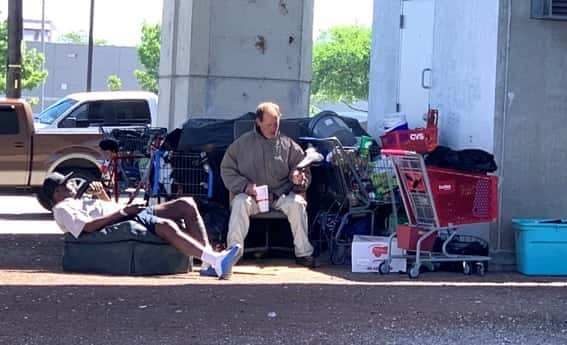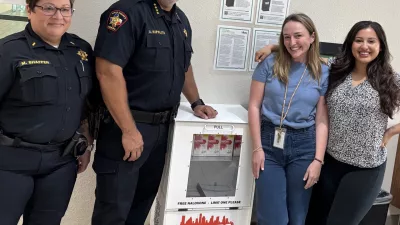(Credit: KLBJ staff)
On Wednesday, Texas Governor Greg Abbott penned a letter to Austin Mayor Steve Adler demanding a change to the city’s current homeless ordinances, which have allowed people to set up campsites in virtually all corners of the city.
“Some businesses are struggling to keep sidewalks clear. Some homeowners feel threatened” Abbott said. “Feces and used needles are piling up at an alarming rate.”
Abbott gave the City of Austin until November 1 to make changes or said he’ll unleash the full authority of numerous state agencies to handle the problem.
Just one day later, the Austin City Council voted to spend more than $1.5-million to take two more steps toward addressing the problem.
$950,000 has been approved for a contract with the Ending Community Homelessness Coaltion, or ECHO, which will oversee a housing subsidy program. Through that, people living on the street will be given help with their transition into a new home, apartment location assistance, and rental assistance. ECHO is hopeful that it will have that new subsidy program up and running before the end of 2019.
Additionally, city leaders also approved spending $720,000 on a contract with Family Eldercare to expand Austin’s Workforce First program, offering people who might otherwise panhandle for money an honest day’s pay for an honest day’s work cleaning up green spaces around the city.
“They are paid $15 an hour, they are paid daily, and they are paid in cash,” said Austin Public Health Director Stephanie Hayden.
The program has been in the pilot stages in South Austin since last year, but this additional money will allow for an expansion into North Austin, too. Hayden told the council there will also be a focus on homeless camp cleanups.
“The focus is primarily on large and medium areas where we are able to really, really clean out those encampments,” she said.
The program has helped 22 people find permanent housing, according to Hayden.
After six months, the city council will once again look at the results of this program and consider whether more funding will be needed.





